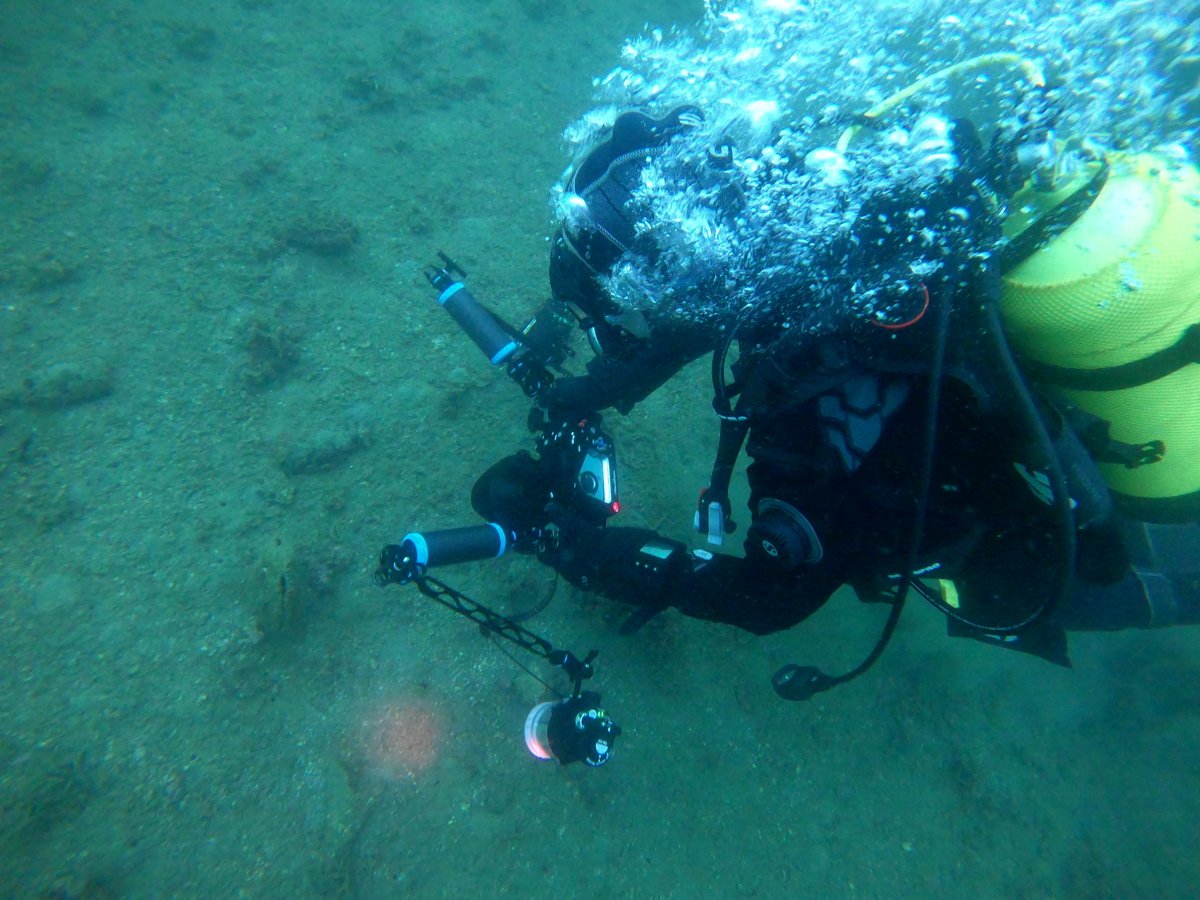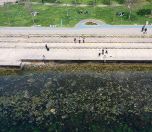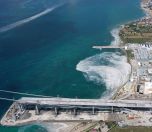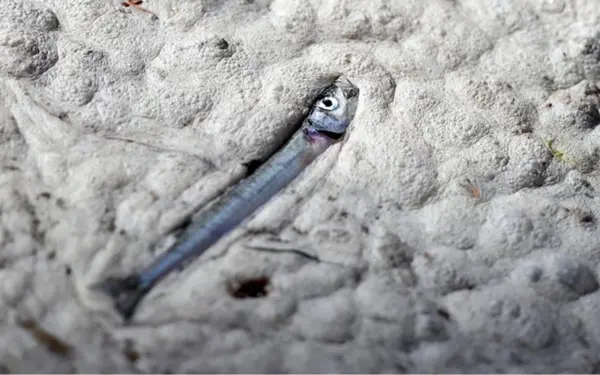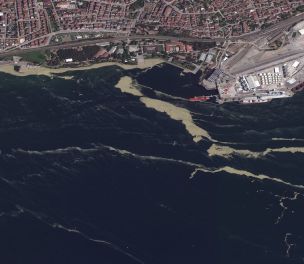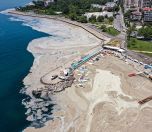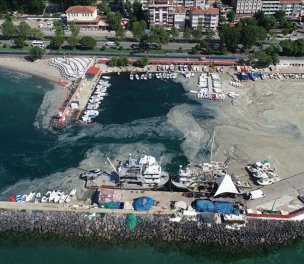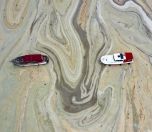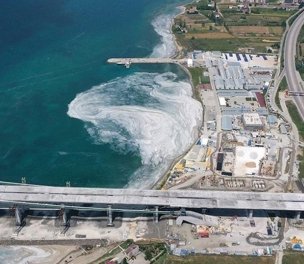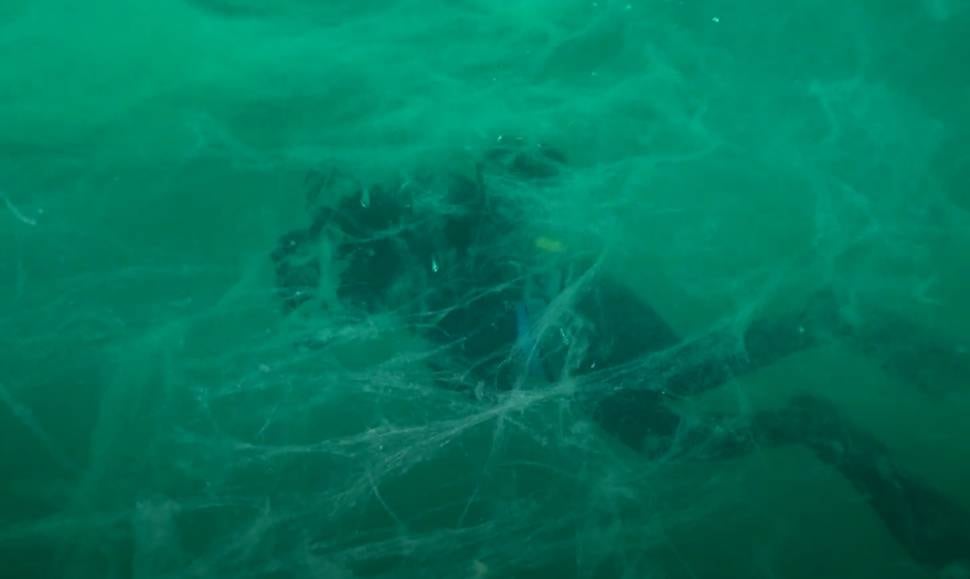Auto-generated English subtitles are available for the video.
Three years after it first captured national attention, mucilage, also known as "sea snot," has reemerged in the Marmara Sea and the surrounding waterways, including the Bosphorus and the Dardanelles in northwestern Turkey. The phenomenon was first widely reported during the summer of 2021, leading to alarm over the deteriorating health of the sea and calls to action.
Following the initial outbreak, the Environment, Urbanization, and Climate Change Ministry released a 22-point "Marmara Sea Action Plan" aimed at combating mucilage through measures to reduce pollution. With the plan’s timeline set to end in 2024, the reappearance of mucilage has renewed concerns about the future of the Marmara Sea.
“An improper relationship with the sea”
Prof Mustafa Sarı of Bandırma Onyedi Eylül University’s Faculty of Maritime Studies, who conducted a dive in the Erdek Gulf for this report, described mucilage as "a consequence of our improper relationship with the sea." Sarı pointed out that years of using the Marmara Sea as a dumping ground have pushed its ecosystem to the brink.
According to Sarı, three primary factors contribute to mucilage outbreaks: rising sea temperatures caused by climate change, stagnant water conditions, and excessive pollution levels. "The mucilage disaster we saw in 2021 and are witnessing again today stems from these conditions converging," he explained.
During his dive, Sarı observed thick layers of mucilage starting at depths of five meters and extending as far as 25 meters. He emphasized that because the mucilage has not yet reached the surface, most people remain unaware of its presence.

"The mucilage is sinking to the seabed, smothering sponges, corals, and marine life like pinales. It blocks their ability to breathe and feed," he said, warning of the long-term ecological damage already underway.
Sarı stressed the urgency of reducing the pollution load on the Marmara Sea, which is currently burdened by waste from 25 million people living in the surrounding area. He called for the full implementation of the 22-point action plan as the only viable solution.
A stream of waste
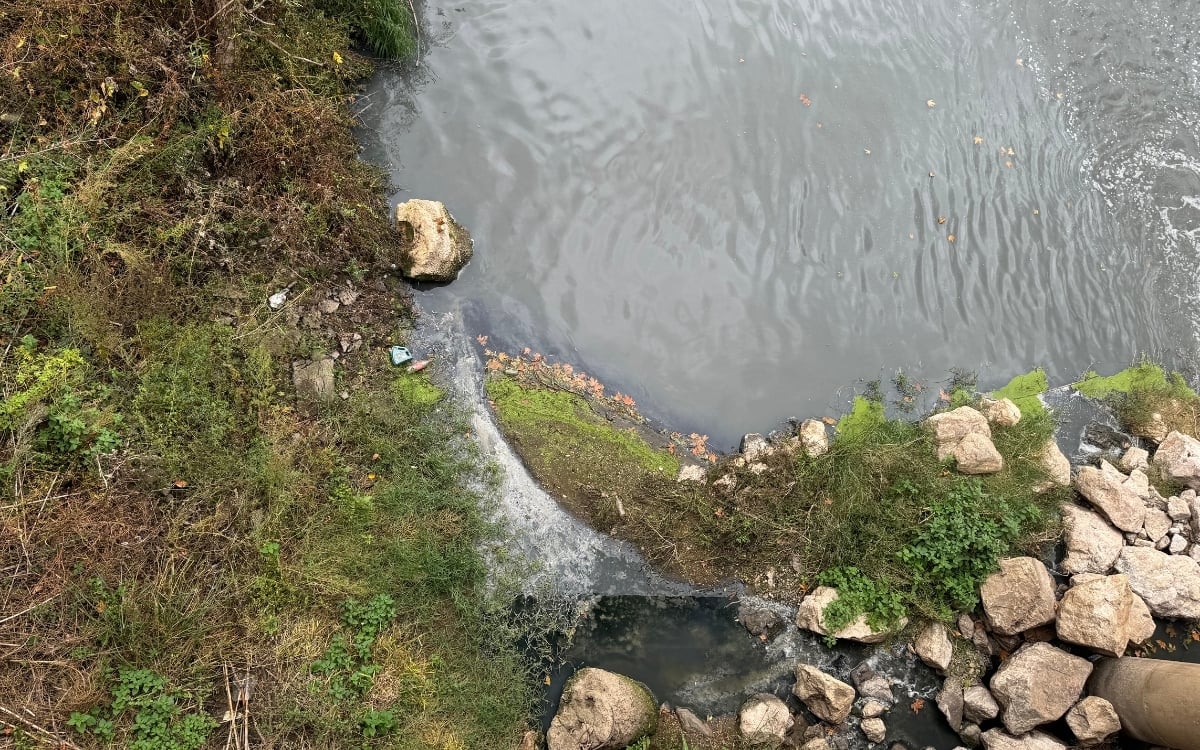
To understand the source of the Marmara Sea’s pollution, a visit to the Gönen Stream was conducted. Originating in the Kaz Mountains and emptying into the Erdek Gulf, the 134-kilometer stream is heavily polluted.
A pungent chemical odor filled the air upon arrival, and the stream's water appeared dark gray with a frothy white layer forming along the banks. Prolonged exposure to the smell caused headaches and difficulty breathing, underscoring the severity of the contamination.
The only question that fishers ask
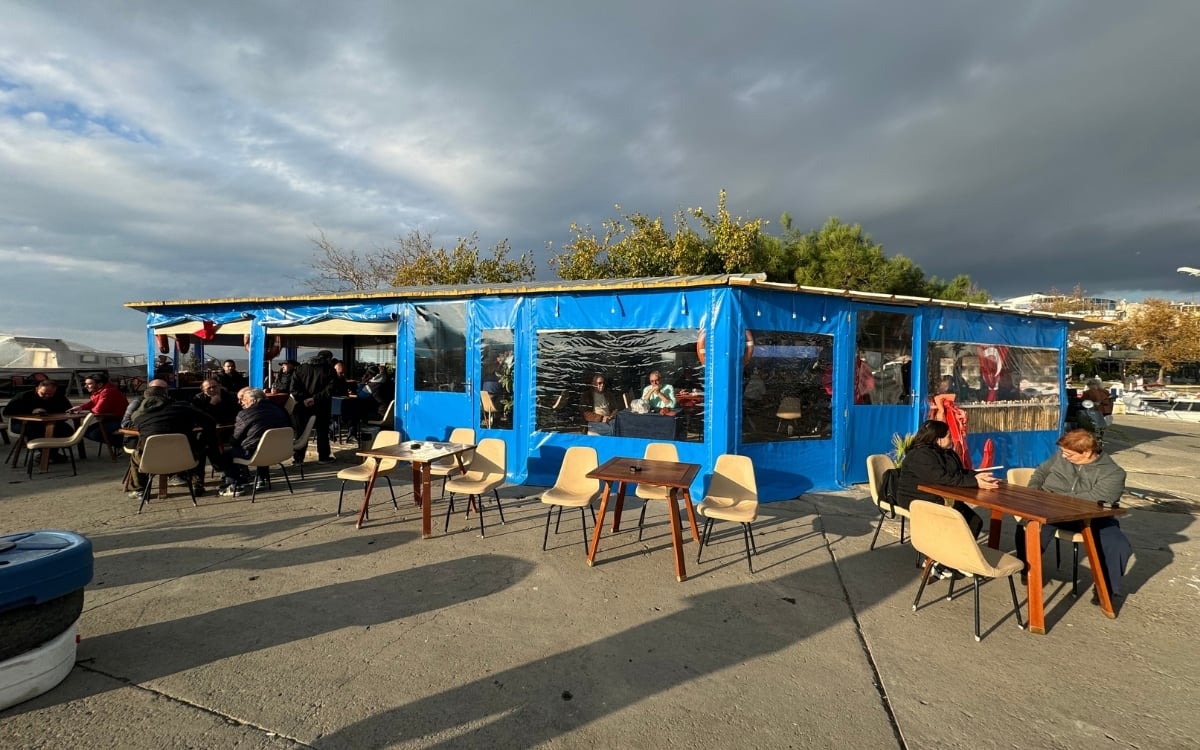
In Erdek, local fishers at the harbor’s coffee shop expressed their concerns, referring to the mucilage as "snot." Every fisherman who returned from the sea was met with the same question: “Was there snot?”
A 76-year-old fisher lamented the decline in fish stocks and blamed industrial waste for turning the once-abundant waters into a “dumping ground.” He explained how the mucilage damages their nets, causing them to sink and break during retrieval.

“When we would go fishing when I was 15-16 years old, there were sea bass, sea bream, mullet, black sea bream, all of them," he said. "Now you can't find a single thing. Those factories left their wastes on the beach and now it is a garbage dump.
"We cast our nets, our buoys are supposed to stay above the water. They sink to the bottom. We spend hours until we pull the net. Our reels break.”
'Fishery is dying'
Another fisher repairing his net shared how mucilage has brought fishing to a standstill. “Each year, the sea deteriorates a little more, and the fish disappear,” he said, adding that in years with severe mucilage, fishermen could not cast their nets, and fish died in large numbers.

Mehmet, a captain who had just returned from sea, expressed frustration over being left to combat the problem alone. "We avoid fishing in areas with mucilage because it damages our equipment," he said, recounting how the winch on his boat broke due to mucilage buildup.
Another fisher working on his boat summed up the issue: "Mucilage has killed all marine life. It’s time to enforce strict oversight on industrial waste. The sea has had enough chemicals." (AD/VK)





